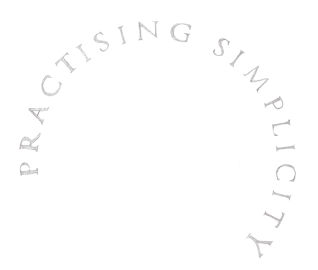how to plan a babymoon
Not to be confused with the second trimester holiday that has cheekily adopted the term, a traditional babymoon is a dedicated period of rest after the birth of your baby.
The new mother and her baby are essential cocooned by the village; they are cared for, fed and doted upon in a warm, nourishing space. It’s a custom that harks back to biblical times and many cultures around the world continue to embrace it. Essentially it is a period of time for the mother to rest, heal and create a lasting bond with her baby.
I had the opportunity to relish in a three-week babymoon after Poet’s and Percy’s births and while I didn’t restrict myself to the bedroom I never ventured far from the home. With my hand on my heart I can tell you that those weeks are some of my favourite – ever. In that time I experienced deep rest after birth, I established a healthy breastfeeding rhythm with my baby and I restored my energy which, I believe, benefitted my mental, emotional and physical health for the entire first year.
The concept of “staying in”, declining visitors and literally lying around all day with your new baby is foreign to most people, so much so that the thought seems plainly bizarre. And I suppose this is just a reflection of our culture which deems the success of a new mum to be venturing out to the local cafe mere days after birth.
There have been countless times when I have sat in front of a class of pregnant yoga students and explained the intricacies of a babymoon. Why? Because the only way to normalise it – and hence support new mums – is to bring it out in the open. And almost every single woman present sits and stares in aghast, so taken aback is she by the thought of three. weeks. at. home.
But then I explain…
I talk about what your body feels like in the week after birth. The tender, raw, vulnerable all-encompassing feeling that naturally comes after opening to birth your baby. Perhaps you have stitches or staples, you can’t sit up properly because your core is non-existent, you are bone-weary after twelve, twenty, perhaps thirty hours of labour and you’re spending much of your day trying to attach your baby to your breast – often a painful, tiring experience. Now imagine sharing this with visitors who just want to hold the baby you just spent two hours feeding, settling and getting to sleep.
I tell them about the onslaught of well-meaning family, friends and neighbours who want to pick up your baby, shower them with kisses (and germs) and cover them in wafts of perfume. These same guests will expect a cup of tea, a decent conversation and will happily hand baby back when he starts to get unsettled…leaving you mentally and emotionally drained with a very grumpy bub to boot.
I talk about the witching hour, when babies naturally wail for hours on end (and continue to do so till they’re five!). And it’s at this exact time that you and your partner are attempting to make dinner. Attempting being the operative word.
And then I tell them that long periods of sleep are not common in those first few weeks (ahem, months, years) and so the opportunity to sleep it all off never eventuates.
When I have their attention I explain the cocooned space of a babymoon – no visitors, nourishing food prepared by others, warm cups of tea, PJs all day, no need to venture far from your bed or the lounge, hushed voices and the opportunity to really, truly soak in the glory of your newborn.
Generally, their main concern is offending people when they tell them that they’re not having visitors for a few weeks. And that’s completely understandable. But as I explain, it’s the first of many decisions you’ll make as parents that reflect your priorities but may cop criticism from those around you.
A Traditional Babymoon
I recently purchased The First Forty Days which is a heartfelt guide to nourishing a new mum. It’s written by Chinese-American author, Heng Ou, who comes from a long line of traditional Chinese herbalists (Chinese medicine wholeheartedly advocates the traditional confinement of the babymoon). Ou shares nourishing recipes, hints and tips for creating a quiet, restful space and chapter upon chapter of reasons why new mothers gain so much from rest and support after birth.
Regardless of culture or heritage, there are four common themes threaded throughout traditional postpartum care. They include:
- Retreat : “…almost every postpartum protocol advises the mum and bub to stay inside for as long as possible after birth and cautions against rushing out into the world too soon. Both parties are seen to be especially susceptible in this time – but not just to the obvious triggers of illness like germs. They’re also susceptible to the aggravating effects of cold, wind, and noise, which can penetrate their especially ‘open’ states and burrow in to disturb both physical and mental balance. In Ayurveda, it is said that for a mother to move around outside after birth is like leaving all the doors and windows open and allowing the drying and physically and mentally disturbing winds of vata to whip through its rooms. Any which was you cut it, the logic goes: lie low. Keep activity minimal and let the mind rest in its simplest form of awareness with few distractions and responsibilities, so that mum’s and baby’s brain waves stay closely in sync.”
- Warmth : “…a woman’s blood volume almost double during pregnancy to support her growing baby; after birth, the loss of this excess of warm, circulating blood, combined with her open state, means that heat must be recaptured and circulation boosted to optimise healing…there is one piece of the warming approach that is timeless: eating soft and easily digestible foods in the early days after birth, to support the weakened digestive fire and gently help to stoke it.”
- Support : “….what helps put all of this care – warming food, naps and rest, cocooning without errands – within reach? Having some kind of support system to help pull it off…with a little advance planning, a mother-to-be can put out a call for support in the weeks to come, and she may be surprised who responds and how. Society may not offer safety nets any more, but we can start to make our own.”
- Rest : “…there is no getting away from the fact that the sheer energetic expenditure of recovery and newborn care accrues for every single woman, even the ones who have straightforward births. And if this expenditure is not met with enough rest and quiet, it leaves a deficit that catches up with her down the line.”
Create Your Own Babymoon
I understand that the lack of the “village” in our culture is the exact reason why babymoons rarely exist. But I think we have the opportunity to create our own babymoon if we so wish – perhaps a week of retreat instead of a month, pre-prepared meals defrosted and reheated, little to no expectations placed on the new mum. If you prioritise it, it can (and will!) eventuate.
Granted, when you have other children, it is more difficult to carve out the time and the space for a cocooned babymoon. But it doesn’t have to vanish completely; it can merely be a different kind of babymoon (one where you have very much prepared for the inclusion – and disruption – of the older siblings).
A few ideas for how you can plan your own babymoon and reach out for help:
- most cooked foods keep for three months in the freezer so once you reach 32 weeks pregnant, plan some big batch cooking. Alternatively, utilise your slow cooker (and make sure your partner knows exactly how to use it, too!). If you need some ideas, Stace has just launched a winter meal plan with heaps of great tips and tricks for slow cooker meals. When it comes to food for the newborn phase remember that nourishing, warming foods are key. Steer clear of salads and opt for roasted vegies, casseroles, broth, soups etc
- in the weeks leading up to your birth, if friends and family ask you what you need, tell them: food! After all, there are only so many muslin wraps and teddy bears that you’ll need. If you’re having a baby shower request that a two-week meal roster is set-up and let your friends know that while sometimes you’ll be up for a quick chat when they drop a meal around, sometimes you’ll be in bed, resting.
- stock up on snacks – lots of them! New mothers have an insatiable appetite so do a bit of baking in preparation.
- stock the pantry and embrace online grocery shopping. This is an integral part of nesting and absolutely vital during the first few weeks so you really can stay home and cuddle up with your baby.
- organise family, friends or babysitters to take your older children to pre-school, school or for daily outings to the park.
- if someone asks you how they can help, tell them! Waking up to a clean kitchen or freshly folded washing are little things that are so big when you’re a new mum.
- learn to accept help – it’s a skill for life.
If you have any ideas for how to create/plan a babymoon or any recipes you would like to share, please feel free to leave a comment.




I’m also planning my babymoon & so far we’ve stocked the pantry & herbal tea cupboard, stocked up on healing balms, pads, oils, herbs for sitz baths & a few supplies for emotional support, so I’m feeling pretty organised at this point! But the whole visitor thing definitely makes me nervous. My husband is the youngest of 6 & so that’s a lot of aunts & uncles to visit! My friends will understand about waiting but I don’t think family will. One idea we had was to utilise the help of our mother carer. We are extremely fortunate to have access to help from a mother carer for 5 hours/day for 4-5 days in the first week with whatever we need help with, almost like a postpartum doula. Our midwife said they can even help with managing visitors such as telling them to come back at a better time or politely asking them to leave after half an hour or so if we’ve had enough. I think this will be especially helpful as I imagine my emotions will run high those first few weeks!
Lisa, please share the concept of mother carer. I love yhe sound of it!
Lisa, please share the concept of mother carer. I love the sound of it! I enjoyed Robin Lim’s “After the Baby’s born”. We aimed for 4 week baby moon and it was so crucial for establishing all factors for a good start, as mentioned above by Jodi.
I wish this book was around when I gave birth. I had my first in Sydney. Before we moved, my mum visited our house every day and made a fresh fruit bowl at arms reach, a nourishing dinner and looked after my son so I could sleep. It was only for 6 weeks before we moved. With my second child I had even less help and my neighbours came over to hold the babies and share their germs. Yes they had colds! I’d rather cooked meals than gifts from them too. Sounds ungratelful but I didn’t need stuff I needed food! My mum told me when her chinese neighbour had a child her husband bought organic chickens from a farm and wife’s Aunty stayed with them and cooked nourishing broth. The new mother was not allowed to go out or have visitors for 40 days. Sounds bliss to me!
Love this Jodi, I’m going to share it with my prenatal students x
I loved the sound of this book but didn’t feel that it’s purchase could fit in our budget at present. None of my local libraries (and I am in between two shires/districts) had a copy so I suggested to my local library that they stock it, and within a couple of weeks it was purchased by them and on hold for me with a simple 80c fee. Aren’t libraries such a fantastic resource?!
I am 30 weeks pregnant with my third and really enjoying the insights. I have always had a great support network but 3rd time around I am feeling the need for this rest and grateful for the permission. It’s great to sit down to the book at the end of the day with a cup of herbal tea. The idea of 40 days of rest and rejuvenation strengthening women for the next 40 years – I love it! Lots to mull over and think on and some great practical things to prepare for. Thanks for the recommendation Jodi. x